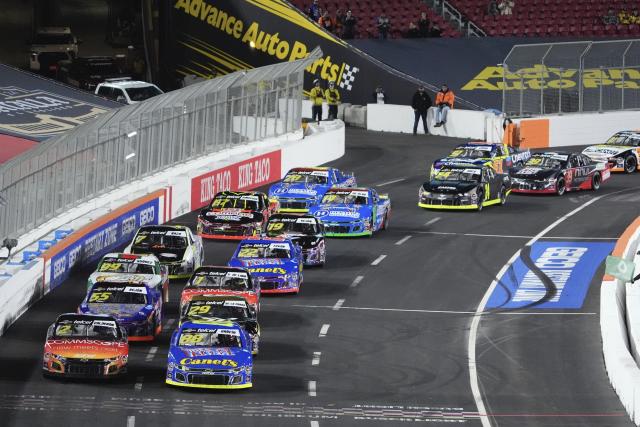replaced their struggling full-time driver with a promising newcomer. This shake-up was a calculated risk aimed at injecting fresh
energy and expertise into the team, which had been grappling with disappointing results throughout the season.
The decision to replace a full-time driver mid-season is never taken lightly in the world of NASCAR. It involves a complex evaluation
of performance metrics, team dynamics, and the broader competitive landscape. For the Chicago team, however, it became
increasingly clear that a change was necessary to reignite their competitive edge and improve their standing in the championship.

The departing driver, despite their dedication and experience, had faced numerous challenges throughout the season. Issues with car
setup, qualifying performances, and on-track incidents had contributed to a series of lackluster finishes. Recognizing the need for
immediate improvement, team management opted to bring in a driver renowned for their adaptability and proven track record in
lower-tier series.
The newcomer, while relatively inexperienced at the NASCAR Cup level, brought a wealth of talent and hunger to succeed. Known for
their aggressive driving style and strategic prowess, they quickly integrated into the team, working closely with engineers and crew
chiefs to fine-tune the car to their liking. This collaboration was pivotal in preparing for the demanding Chicago race, where nuances
in car setup and track conditions often make the difference between victory and defeat.
The atmosphere within the team shifted palpably with the arrival of the new driver. There was a renewed sense of optimism and
determination as everyone rallied behind the common goal of achieving a podium finish in Chicago. The team’s sponsors and
supporters also expressed confidence in the strategic decision, viewing it as a necessary step towards revitalizing their competitive
campaign.
As race day approached, anticipation and excitement were palpable in the Chicago team’s garage. The new driver’s performance in
practice and qualifying sessions showed promising signs of improvement, hinting at a potential turnaround in their fortunes. With
adrenaline pumping and strategies in place, all eyes were on the race ahead, where the true impact of this pivotal decision would
unfold on the demanding oval of Chicago Speedway.
In the fast-paced world of NASCAR, where split-second decisions can make or break a team’s season, the Chicago team’s choice to
replace their struggling full-time driver underscored their commitment to excellence and readiness to adapt in pursuit of victory.


